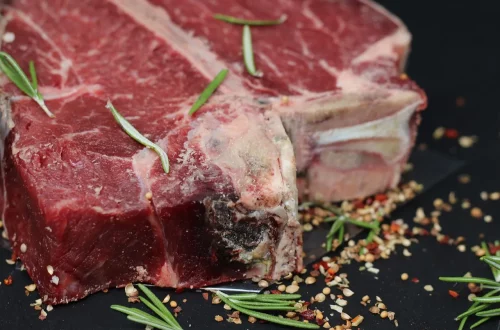
Can Chickens Eat Rosemary? Exploring the Benefits and Risks
Chickens are fascinating creatures that have captured the hearts of backyard farmers and poultry enthusiasts alike. These domesticated birds are not only valued for their ability to lay eggs and provide meat, but they also contribute to sustainable farming practices by helping to control pests and recycle food scraps. As a result, many chicken owners are keen to ensure that their feathered friends receive a balanced diet that promotes their health and well-being.
Among the various herbs and plants that can be considered for chicken feed, rosemary stands out due to its aromatic properties and potential health benefits. This perennial herb, commonly used in culinary dishes, is also known for its natural medicinal qualities. As chicken owners explore ways to enhance their flock’s diet, the question arises: can chickens eat rosemary? Moreover, what are the benefits and risks associated with including this herb in their diet?
Understanding the dietary needs of chickens and how specific plants can affect their health is essential for responsible poultry keeping. By delving into the nutritional profile of rosemary and its impact on chickens, we can better appreciate the role this herb may play in their diet while ensuring that we make informed decisions for our feathered companions.
Nutritional Profile of Rosemary
Rosemary is not only a flavorful herb but also a nutrient-rich plant that can offer various benefits when incorporated into the diets of chickens. This herb is packed with essential oils, vitamins, and antioxidants, making it a valuable addition to their feed. The primary active compounds found in rosemary include rosmarinic acid, carnosic acid, and essential oils such as camphor, borneol, and 1,8-cineole.
One of the notable benefits of rosemary is its high antioxidant content. Antioxidants are compounds that help combat oxidative stress in the body, which can result from environmental factors, stress, and other challenges. By including rosemary in their diet, chickens may benefit from enhanced immune function and improved overall health. Antioxidants can also aid in reducing inflammation and boosting the body’s natural defenses, which is crucial for maintaining a healthy flock.
In addition to its antioxidant properties, rosemary contains various vitamins and minerals, including vitamin C, vitamin A, calcium, and iron. These nutrients play vital roles in supporting chicken health. For instance, vitamin C is essential for the immune system, while calcium is necessary for strong bones and eggshell formation. By providing a diverse diet that includes rosemary, chicken owners can help ensure their birds receive a well-rounded nutrient profile.
Moreover, rosemary is known for its antimicrobial properties, which can help fend off certain pathogens and reduce the risk of infections. This is particularly relevant for chickens, as they can be susceptible to various diseases. Feeding rosemary may contribute to a healthier gut environment, promoting better digestion and nutrient absorption.
However, while rosemary has many potential benefits, it is essential to introduce it gradually into a chicken’s diet to avoid any adverse reactions. Too much of this herb can lead to digestive issues or other complications. Therefore, moderation is key when offering rosemary as a supplement to their usual feed.
Health Benefits of Rosemary for Chickens
Incorporating rosemary into a chicken’s diet can offer a variety of health benefits that contribute to their overall well-being. One of the most significant advantages is its potential to enhance the immune system. A robust immune response is crucial for preventing diseases and infections that can affect the flock. The antioxidant properties of rosemary help reduce oxidative stress, which can weaken the immune system and make chickens more susceptible to illnesses.
Additionally, rosemary may aid in digestion. Chickens, like other animals, require a healthy digestive system to process their food effectively. The natural compounds found in rosemary can promote healthy gut flora, reducing the likelihood of digestive disorders. A well-functioning digestive system is essential for optimal nutrient absorption, which ultimately leads to better growth, egg production, and overall health.
Rosemary is also known for its potential to repel pests. The strong aroma of rosemary may deter certain insects and parasites that can pose a threat to chicken health. By including this herb in their environment or feed, chicken owners may find that their flocks are less susceptible to infestations, leading to a more comfortable and healthier living space.
Furthermore, rosemary has been associated with improved egg quality. Hens that are provided with a nutritious diet, including herbs like rosemary, may lay eggs with better nutrient profiles and stronger shells. This is particularly important for those who rely on their chickens for egg production, as high-quality eggs are often a top priority for poultry keepers.
While the potential benefits of rosemary are compelling, it’s important to remember that it should not replace a balanced diet. Chickens require a variety of nutrients to thrive, and rosemary should be seen as a supplement rather than a primary food source. Providing a well-rounded diet, complemented by herbs like rosemary, can help ensure that chickens remain healthy and productive.
Potential Risks and Considerations
Despite the numerous benefits of rosemary, there are also potential risks and considerations to keep in mind when introducing this herb into a chicken’s diet. One of the primary concerns is the possibility of digestive upset. Chickens have sensitive digestive systems, and any sudden changes to their diet can lead to issues such as diarrhea or discomfort. Therefore, it is crucial to introduce rosemary gradually and in moderation.
Another consideration is the quality of the rosemary being offered. If chicken owners decide to grow their own rosemary or purchase it from a store, they must ensure that it has not been treated with harmful pesticides or chemicals. Pesticides can be detrimental to chicken health, so opting for organic or homegrown rosemary is advisable.
Additionally, while rosemary is generally safe for chickens, excessive amounts can lead to toxicity. Like many herbs, rosemary contains compounds that can be harmful in large doses. It is essential to adhere to recommended feeding guidelines and consult with a veterinarian or poultry nutritionist if there are any concerns about incorporating rosemary into a chicken’s diet.
Lastly, it’s important to observe the chickens’ behavior and health after introducing rosemary. Each bird is unique, and some may react differently to new dietary additions. Monitoring their response can help determine whether rosemary is a beneficial addition to their diet or if adjustments need to be made.
In conclusion, while rosemary can provide various health benefits for chickens, it is essential to approach its inclusion in their diet thoughtfully and responsibly. By understanding both the advantages and potential risks, chicken owners can make informed decisions that promote the health and happiness of their flocks.
**Disclaimer:** This article is for informational purposes only and does not constitute medical advice. For any health-related concerns, please consult a qualified veterinarian or poultry expert.




